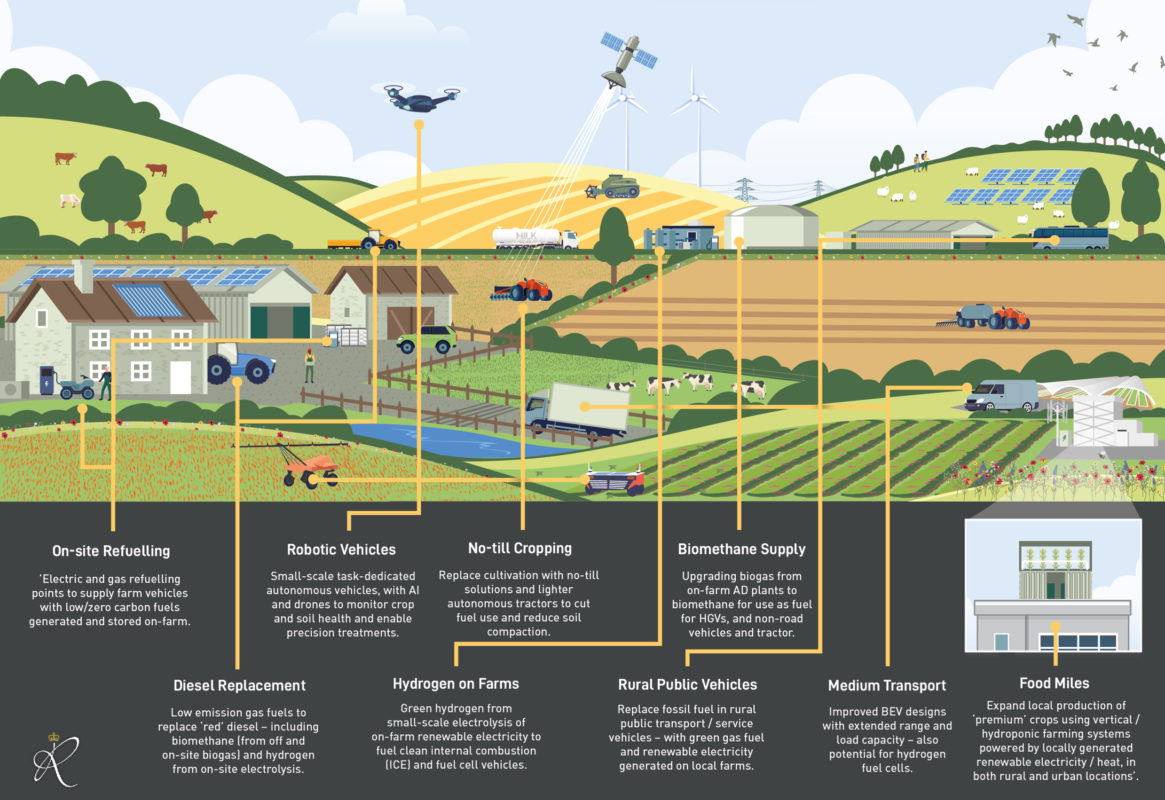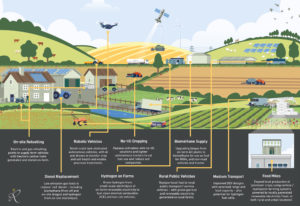
- Category:
- News
Decarbonising farm vehicles of the future
Climate change has major consequences for UK farmers and land managers argues the Royal Agricultural Society of England (RASE) in its Briefing Paper released to coincide with the UN climate change conference – COP26.
The paper addresses key policy issues, including: sound economic valuation of natural capital, a consistent cross-sectoral food, energy and carbon transition policy, the introduction of standardised farm-level emissions accounting, and the adoption of environmental and carbon impact labelling on food to help inform consumer choice.
The paper highlights the emissions reduction options available to farmers and land managers; these include improved environmental resource management, low carbon and renewable energy options, low emission farm vehicles and fuels, digital technology and robotics.
Better valuation of nature and natural capital is vital in meeting the UK’s decarbonisation and food security goals, as well as to restoring soil health, increasing biodiversity and managing land and water resources.
Cenex provided technical authorship of the vehicles section and editorial advice on the paper.
Keith Budden, Head of Business Development at Cenex, said:
“Agriculture is responsible for 10% of UK GHG emissions, 70% nitrous oxide emissions and 49% of methane emissions.
“The farm of the future can be carbon positive by locking carbon into the soil and being a net generator of green energy.
“Cenex looked at options for decarbonising the current farm vehicles and reviewed light weight and autonomous vehicles for the farm of the future that are ideal for low and no till agriculture that help improve soil health and keeps carbon locked in.”
Other recommendations include improved access at farm level to independent, cost-effective decarbonisation advice, including establishment of a farm innovation and demonstrator network, and support for more local action groups to improve soil and water resource management in rural areas.
Philip Gready, chairman of the Royal Agricultural Society of England, states:
“The role of agriculture in decarbonisation is much wider than energy transition.
“Farms can take practical action to build and sequester carbon in soils; improve biodiversity; embrace ‘smart’ technologies; and improve resource use and value of bio-resources.
“By working with supply chain partners including feed suppliers, food processors, supermarkets and consumer groups, farmers can play a leading role in reducing our greenhouse gas (GHG) emissions.”
The main “Farm of the Future” report in Spring 2022 will help to inform farmers about future priorities and the technologies in place now and likely to emerge over the next decade. The ‘Journey to Net Zero’ briefing paper focuses on how better policy can enable farmers to build a healthier, more resilient and nature-friendly food supply system in the UK.
